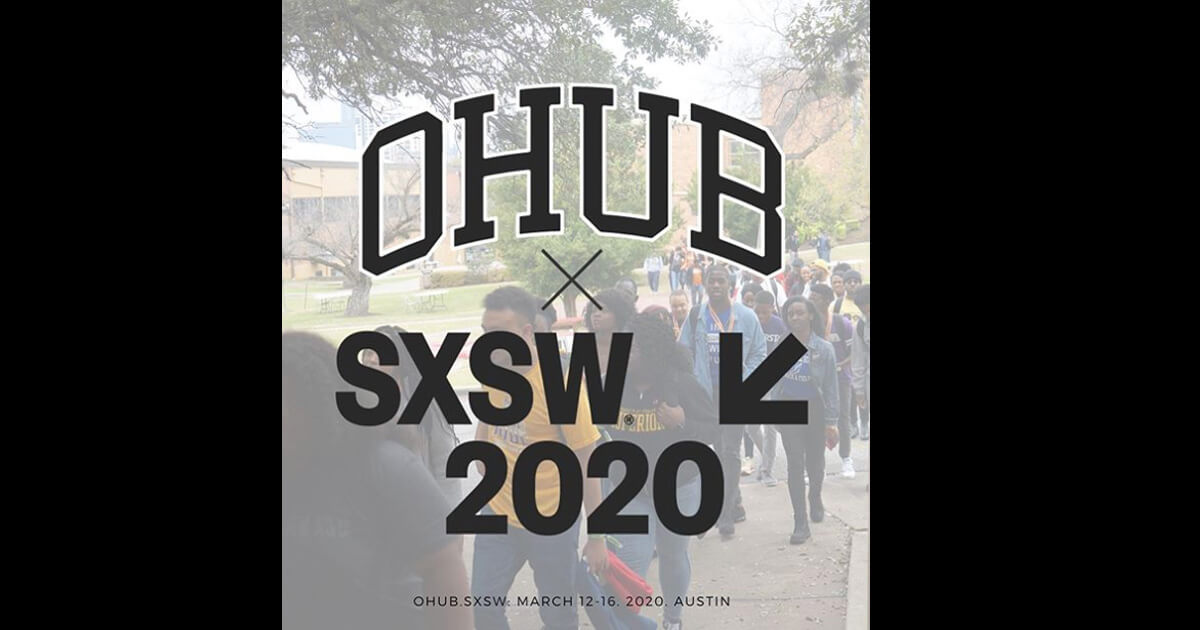If we’ve learned anything from the cancellation of SXSW’s 35th annual music and technology festival last week, it’s that the future of large gatherings and business networking via conference over these next few months will be uncertain at best.
Even more shocking was SXSW’s announcement this week that it would not be refunding any money spent on badges or sponsorship, causing an uproar among those who are out several thousands of dollars.
One organization that has been pushing diversity at SXSW—an otherwise mostly white participant event—was Opportunity Hub, which led the creation of an initiative to host students from Historically Black Colleges and Universities en masse at the conference. It launched in 2016 with just 50 students.
Now, just four years later, Opportunity Hub and leader Rodney Sampson were slated to host 500 college students hailing from HBCUs and other underrepresented ethnic institutions.
Sampson describes how this last year of planning included a fully scaled operation of vendors and staff courting sponsors and partners. Running logistics for programming factored in meal planning, venue rentals, and nonrefundable flights, hotels, transportation, and platinum badges for students. Badges alone run up to $1,500 a pop, not including any group discounts or special internal deals, putting a price tag of $750,000 in expenses alone to give 500 students access to one of the world’s largest and most influential tech conferences.
A look at the organization’s GoFundMe page shows that OHub raised over $650,000 from independent donors and companies, with an undisclosed amount of money from sponsors who were still making commitments.
Whether the majority of that money was a complete sunk cost or they would be able to recover any of the expenses was not clear.
“We are still having a conversation with our partners on whether or not if they’re going to want a return of their money,” said Sampson in an interview earlier this week.
Sampson and his team, like many organizers forced to choose whether to cancel, postpone, or create a digital event experience, quickly worked to pivot their programming to online webinars and presentations for all students who had applied to the SXSW experience. Employer partners like Deloitte, Twitter, and Facebook, will be given the chance to set up virtual interviews with students throughout the remainder of the month.
In a message distributed via the Ohub newsletter, their team shared the following statements:
Right now, over $1 million and $16,750,000 in economic output* hangs in the balance as we were less than one week from execution.That said, we didn’t want to let this year’s cohort of 500 scholars down. So, we’ve created a virtual experience with pop-up component in Atlanta (March 13&14) and Kansas City (March 26-28). We’ve also added all of this year’s 1,500 applicants to the virtual cohort as well. We’re also opening the virtual experience globally; and some limited live-in-person popup access to our Atlanta ecosystem. You can learn more about the virtual + popup experience here and grab a badge.
Dubbed the Ohub SXSW #BlackAndHired virtual experience, students now have free access to three days of virtual programming and access to conversations hosted with industry heavy-hitters and experts like Marlon Nichols of Mac Venture Capital, Jay and Ernestine Morrison of the Tusla Real Estate Fund, and Janice Bryant Howroyd among others.
But directives to remain socially isolated amid COVID-19 fears threaten OHub’s plans to provide a pop-up component that would allow students to still make warm connections.
Opportunity Hub has a planned activation at New Birth Church in Atlanta currently scheduled for March 22. Sampson says the experience inside the 10,000-plus member church will give people outside of the tech ecosystem an opportunity to learn more about entrepreneurship and technology as a whole.
Whether the church activation does occur next week as ongoing coronavirus cases are discovered in the Georgia area remains to be seen.








